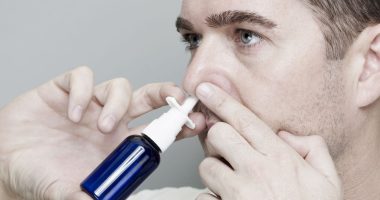Share this @internewscast.com
Ahead, see what adverse symptoms can arise at high altitudes; and more importantly, how you can stop them from putting a damper on your travel plans.
4 things to know before you travel to high elevations
1. Altitude sickness is fairly common
“Traveling to mountains with significant altitudes can make people susceptible to altitude sickness [due to] lower air pressure and air oxygen levels,” says Daniel Hermann, MD, an interventional cardiologist at Memorial Hermann in Houston, Texas. If you reside somewhere relatively close to sea level, your likelihood of experiencing acute mountain sickness (AMS) will largely depend on the altitude of your travel spot. AMS affects approximately 25 percent of people sleeping above 8,000 feet, and many as 40 to 50 percent of those sleeping above 10,000. (However, some people struggle with AMS at elevations starting at 6,500 feet above sea level.)
2. Going too high too fast can trigger symptoms
If possible, try to slowly and steadily increase your altitude as you plan your adventures. “Our bodies can acclimate over a period of days or weeks to these elevations by adjusting our biochemistry. But if we quickly move to those elevations, you can develop medical problems, most commonly altitude sickness,” Dr. Hermann shares. By gradually getting used to high elevations—perhaps by settling at a base camp for a few days before venturing up to higher points and peaks—you can reduce your chances of feeling sick or out of sorts.
According to Dr. Hermann, the most common symptoms of altitude sickness include nausea, vomiting, and headache, which are “generally mild and usually resolve within a couple of days.” However, if you experience more severe symptoms—including chest tightness, intense difficulty breathing, and balance or coordination issues, he advises seeking immediate medical attention.
3. Your gut health can take a hit
It’s common to experience digestive irregularities like bloating, constipation, and diarrhea while traveling. On top of that, traveling to high altitudes can also trigger intestinal barrier dysfunction. Per a 2022 review in the American Journal of Physiology-Regulatory, Integrative and Comparative Physiology, acute exposure to high altitudes may lead to increased intestinal permeability and inflammation in the gut and elsewhere in the body. To add insult to injury, acetazolamide—a medication often prescribed to prevent and treat altitude sickness—can cause GI distress.
Read Related Also: The FDA is sounding the alarm about contaminated eye drops. Here’s what consumers should know.
However, it’s not all doom and gloom. The authors list certain dietary supplements that can help keep your intestinal barrier and greater gut health in fighting shape. Better yet, you might already take some of them daily. These include:
- Glutamine, which strengthens tight junctions and suppresses proinflammatory pathways
- Bovine colostrum, which can stave off stress-induced intestinal injury
- Curcumin (the active ingredient in turmeric), which may fortify the intestinal barrier by reducing oxidative stress
- Probiotics, certain types of which (including Bifidobacterium species) can enhance intestinal epithelial barrier function
4. You’re more susceptible to dehydration
Lower air pressure, less oxygen, and more labored breathing at high elevations can all contribute to dehydration and water loss. “Dehydration is a well-described trigger for altitude sickness,” Dr. Hermann adds, “so staying well hydrated is a great way to avoid or mitigate this trouble.”
Some of the best ways to stay hydrated while traveling—especially if you’re engaging in physical activities such as hikes and water sports, or even simply lounging at high altitudes—include:
- Boosting your water intake before and during your trip
- Snacking on water-rich fruits and veggies (including watermelon, cucumbers, lettuce, and berries)
- Adding electrolyte packets to your water
While it’s helpful to add these into your souped up travel hydration routine, it’s just as important to know what you should limit or avoid. “Alcohol and caffeine are known to promote dehydration,” Dr. Hermann reminds us. “For this reason, [they] should be used sparingly while at high altitudes.” If you can’t quit either (it’s vacation, after all), at least aim to increase water intake more than usual and/or sip on H2O in between servings of coffee and cocktails.















